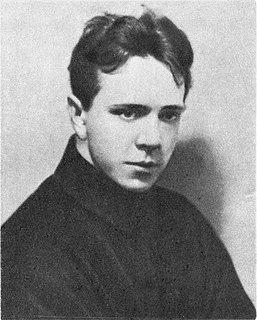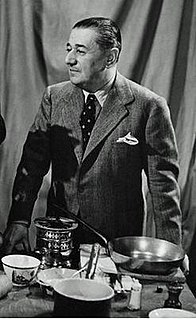A Quote by William Hazlitt
Taste is nothing but an enlarged capacity for receiving pleasure from works of imagination.
Related Quotes
But where only a free play of our presentational powers is to be sustained, as in the case of pleasure gardens, room decoration, all sorts of useful utensils, and so on, any regularity that has an air of constraint is [to be] avoided as much as possible. That is why the English taste in gardens, or the baroque taste in furniture, carries the imagination's freedom very far, even to the verge of the grotesque, because it is precisely this divorce from any constraint of a rule that the case is posited where taste can show its greatest perfection in designs made by the imagination.
Judges of elegance and taste consider themselves as benefactors to the human race, whilst they are really only the interrupters of their pleasure ... There is no taste which deserves the epithet good, unless it be the taste for such employments which, to the pleasure actually produced by them, conjoin some contingent or future utility: there is no taste which deserves to be characterized as bad, unless it be a taste for some occupation which has mischievous tendency.
The Criteria of Emotional Maturity: The ability to deal constructively with reality The capacity to adapt to change A relative freedom from symptoms that are produced by tensions and anxieties The capacity to find more satisfaction in giving than receiving The capacity to relate to other people in a consistent manner with mutual satisfaction and helpfulness The capacity to sublimate, to direct one's instinctive hostile energy into creative and constructive outlets The capacity to love.
The works of a person that begin immediately to decay, while those of him who plants begin directly to improve. In this, planting promises a more lasting pleasure than building; which, were it to remain in equal perfection, would at best begin to moulder and want repairs in imagination. Now trees have a circumstance that suits our taste, and that is annual variety.
What is it that we in the theatre give? Instead of images on canvas or in the form of statuary or music, we give our body, voice, feelings, will, imagination — we give a form of pulsating art to life itself; we give it to our characters and we give it to our audiences. Nothing, absolutely nothing remains for us save the pleasure of having given pleasure.
The discovery of the good taste of bad taste can be very liberating. The man who insists on high and serious pleasures is depriving himself of pleasure; he continually restricts what he can enjoy; in the constant exercise of his good taste he will eventually price himself out of the market, so to speak. Here Camp taste supervenes upon good taste as a daring and witty hedonism. It makes the man of good taste cheerful, where before he ran the risk of being chronically frustrated. It is good for the digestion.



































